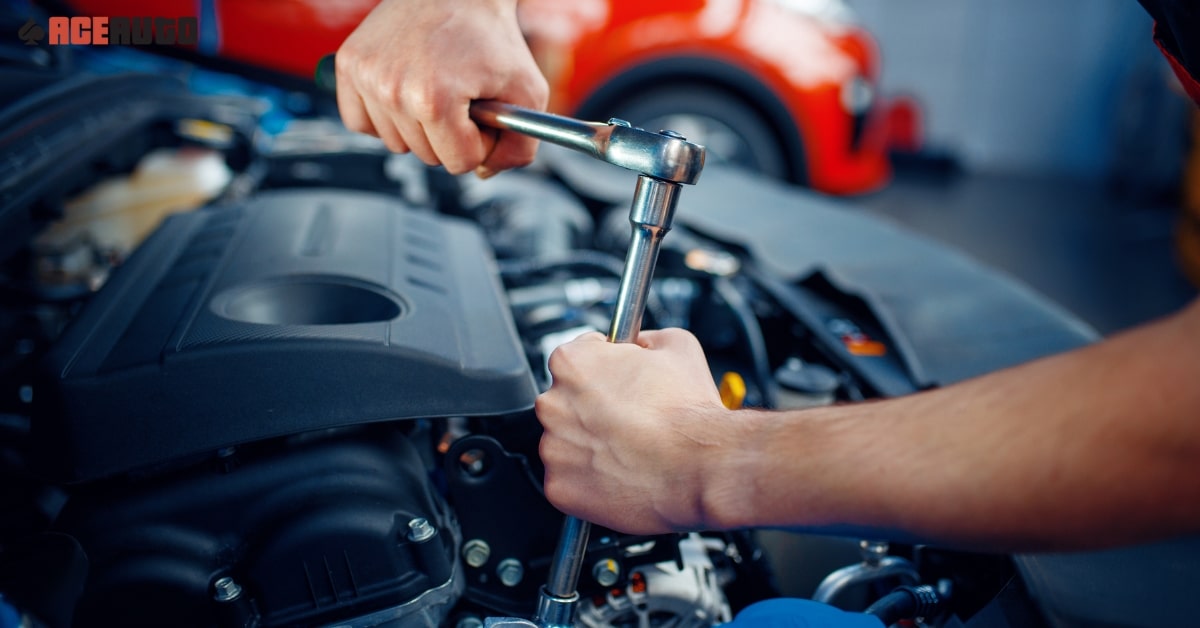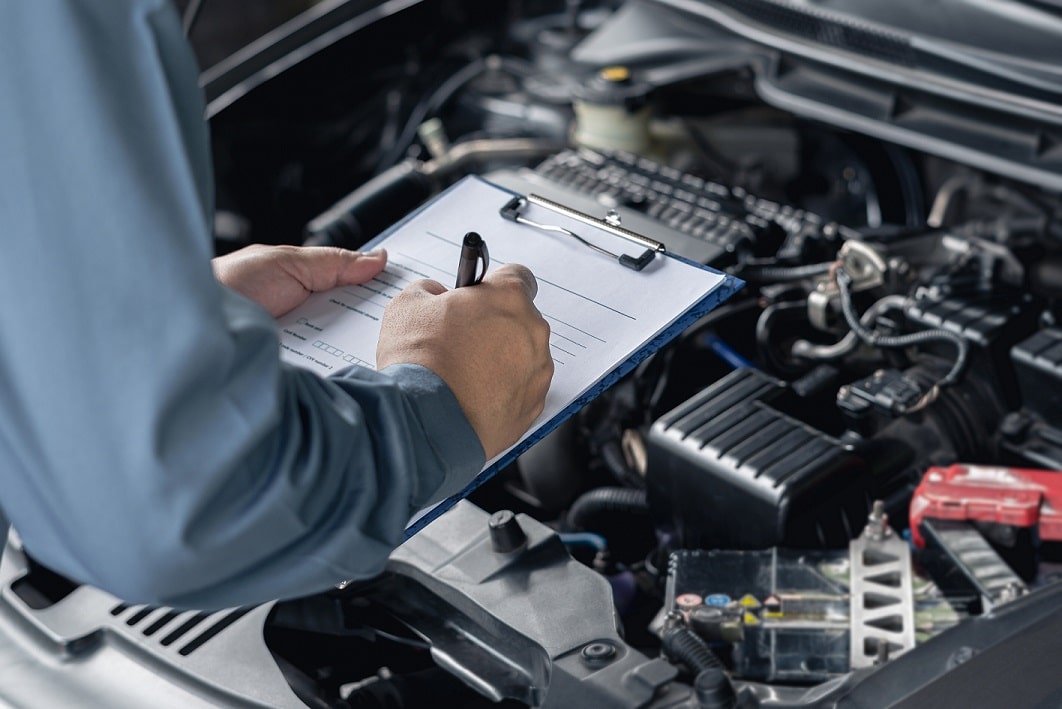All Categories
Featured
When it comes to preserving a car, understanding the differences between routine repair and maintenance is important for auto proprietors. Both facets are essential for the durability and reliability of your vehicle, yet they serve distinct objectives and are taken care of in a different way. By knowing when to carry out regular upkeep versus when to address fixings, you can keep your lorry running smoothly and prevent pricey shocks.
![]()
Routine Upkeep: Avoidance is Trick. Regular upkeep includes the normal, precautionary treatment that your vehicle requires to prevent future troubles. It is usually set up at details intervals, such as every 3,000 or 5,000 miles, based upon your vehicle's manual or supplier referrals. Routine upkeep helps make sure that your automobile remains in ideal problem, preventing deterioration from creating major problems down the line.
Some typical instances of regular upkeep consist of:
Oil Adjustments: Regular oil changes are important to maintain your engine lubricated and running successfully. Oil helps in reducing friction in between engine parts, preventing getting too hot and unneeded wear. Tire Upkeep: This includes tire turnings, harmonizing, and checking tire stress. Correct tire upkeep ensures far better fuel efficiency, handling, and tire durability. Brake Inspections: Regular look at your brakes, including pads and liquid degrees, can capture any possible problems early, protecting against brake failing and making certain safety and security. Fluid Checks and Top-Ups: Ensuring your cars and truck has the right levels of coolant, transmission fluid, power guiding fluid, and brake liquid is very important for overall lorry health. Air Filter Replacement: Changing the air filter guarantees that your engine obtains tidy air, which helps it run a lot more successfully and reduces engine pressure. Regular upkeep is generally scheduled and does not entail repairing any type of damaged components-- it has to do with maintaining whatever in good working order and preventing future malfunctions.
Repairs: Taking Care Of the Unanticipated. Fixings, on the other hand, are essential when something goes incorrect with your automobile. Fixings attend to problems that affect the auto's performance or security and require to be taken care of asap. Unlike maintenance, which is preventative, repairs generally occur when components have broken, stopped working, or malfunctioned.
Examples of typical repairs consist of:
Transmission Issues: If your car is having problem changing experiences or equipments slipping, the transmission might require repairs or replacement. Engine Failure: If your engine starts misfiring, getting too hot, or delaying, it might call for considerable repair services or replacement of components like the timing belt, pistons, or seals. Brake Fixes: While brake pads are part of regular maintenance, if your brakes are making a grinding noise or are no longer working properly, brake repair work will be required, such as replacing the calipers or the blades. Battery Replacement: If your cars and truck will not start or the battery is no longer holding a fee, you'll require a substitute battery, which is a repair service. Suspension and Guiding Fixings: Concerns with the suspension or steering system-- such as difficulty guiding or a tough time-- can be indicators that parts like struts or shock absorbers need repair service. Fixings are commonly much more expensive and urgent than routine maintenance. They are called for when something breaks or malfunctions, which can affect the vehicle's capability and safety and security.
Trick Differences In Between Routine Repair And Maintenance. Timing: Routine maintenance is preventative and performed at scheduled intervals, while fixings are reactive and happen when something fails. Price: Maintenance is generally much less costly, as it involves checking and changing smaller fluids or components. Repairs, specifically significant ones, tend to be extra pricey as a result of the intricacy of fixing defective or broken components. Purpose: The objective of maintenance is to maintain your vehicle running well and protect against issues. Fixings, on the various other hand, are required to deal with issues that have actually currently occurred. Frequency: Regular maintenance takes place continually at established periods (e.g., every 5,000 miles), while repairs are much less foreseeable, commonly occurring when components fall short or put on out unexpectedly. Why Both are Crucial. Both routine repair and maintenance are necessary for the long-lasting wellness of your vehicle. Regular maintenance helps keep your automobile running smoothly and can avoid numerous typical concerns from establishing in the very first place. By remaining on top of set up solutions, you can resolve little troubles before they transform into pricey fixings.
![]()
However, repairs are sometimes inescapable. Despite having the finest upkeep, components break in time, and unforeseen concerns can occur. When repairs are required, resolving them quickly can avoid additional damage and ensure your automobile's safety and security and integrity.
Verdict. In summary, recognizing the distinction in between routine repair and maintenance helps you take the best actions to take care of your vehicle. Regular maintenance can conserve you money by avoiding larger concerns, while fixings are necessary when something goes wrong. By staying positive with upkeep and dealing with fixings when required, you can expand the life expectancy of your lorry and make certain that it continues to carry out at its ideal for years ahead.

Routine Upkeep: Avoidance is Trick. Regular upkeep includes the normal, precautionary treatment that your vehicle requires to prevent future troubles. It is usually set up at details intervals, such as every 3,000 or 5,000 miles, based upon your vehicle's manual or supplier referrals. Routine upkeep helps make sure that your automobile remains in ideal problem, preventing deterioration from creating major problems down the line.
Some typical instances of regular upkeep consist of:
Oil Adjustments: Regular oil changes are important to maintain your engine lubricated and running successfully. Oil helps in reducing friction in between engine parts, preventing getting too hot and unneeded wear. Tire Upkeep: This includes tire turnings, harmonizing, and checking tire stress. Correct tire upkeep ensures far better fuel efficiency, handling, and tire durability. Brake Inspections: Regular look at your brakes, including pads and liquid degrees, can capture any possible problems early, protecting against brake failing and making certain safety and security. Fluid Checks and Top-Ups: Ensuring your cars and truck has the right levels of coolant, transmission fluid, power guiding fluid, and brake liquid is very important for overall lorry health. Air Filter Replacement: Changing the air filter guarantees that your engine obtains tidy air, which helps it run a lot more successfully and reduces engine pressure. Regular upkeep is generally scheduled and does not entail repairing any type of damaged components-- it has to do with maintaining whatever in good working order and preventing future malfunctions.
Repairs: Taking Care Of the Unanticipated. Fixings, on the other hand, are essential when something goes incorrect with your automobile. Fixings attend to problems that affect the auto's performance or security and require to be taken care of asap. Unlike maintenance, which is preventative, repairs generally occur when components have broken, stopped working, or malfunctioned.
Examples of typical repairs consist of:
Transmission Issues: If your car is having problem changing experiences or equipments slipping, the transmission might require repairs or replacement. Engine Failure: If your engine starts misfiring, getting too hot, or delaying, it might call for considerable repair services or replacement of components like the timing belt, pistons, or seals. Brake Fixes: While brake pads are part of regular maintenance, if your brakes are making a grinding noise or are no longer working properly, brake repair work will be required, such as replacing the calipers or the blades. Battery Replacement: If your cars and truck will not start or the battery is no longer holding a fee, you'll require a substitute battery, which is a repair service. Suspension and Guiding Fixings: Concerns with the suspension or steering system-- such as difficulty guiding or a tough time-- can be indicators that parts like struts or shock absorbers need repair service. Fixings are commonly much more expensive and urgent than routine maintenance. They are called for when something breaks or malfunctions, which can affect the vehicle's capability and safety and security.
Trick Differences In Between Routine Repair And Maintenance. Timing: Routine maintenance is preventative and performed at scheduled intervals, while fixings are reactive and happen when something fails. Price: Maintenance is generally much less costly, as it involves checking and changing smaller fluids or components. Repairs, specifically significant ones, tend to be extra pricey as a result of the intricacy of fixing defective or broken components. Purpose: The objective of maintenance is to maintain your vehicle running well and protect against issues. Fixings, on the various other hand, are required to deal with issues that have actually currently occurred. Frequency: Regular maintenance takes place continually at established periods (e.g., every 5,000 miles), while repairs are much less foreseeable, commonly occurring when components fall short or put on out unexpectedly. Why Both are Crucial. Both routine repair and maintenance are necessary for the long-lasting wellness of your vehicle. Regular maintenance helps keep your automobile running smoothly and can avoid numerous typical concerns from establishing in the very first place. By remaining on top of set up solutions, you can resolve little troubles before they transform into pricey fixings.

However, repairs are sometimes inescapable. Despite having the finest upkeep, components break in time, and unforeseen concerns can occur. When repairs are required, resolving them quickly can avoid additional damage and ensure your automobile's safety and security and integrity.
Verdict. In summary, recognizing the distinction in between routine repair and maintenance helps you take the best actions to take care of your vehicle. Regular maintenance can conserve you money by avoiding larger concerns, while fixings are necessary when something goes wrong. By staying positive with upkeep and dealing with fixings when required, you can expand the life expectancy of your lorry and make certain that it continues to carry out at its ideal for years ahead.
Latest Posts
Explore the Best Auto Repair Offers in Montclare, Chicago
Published May 28, 25
1 min read
Don’t Miss Exclusive Auto Repair Deals in Chicago at Montclare Auto Repair
Published May 23, 25
1 min read
Uncover the Best Auto Repair Discounts in Montclare, Chicago
Published May 21, 25
1 min read